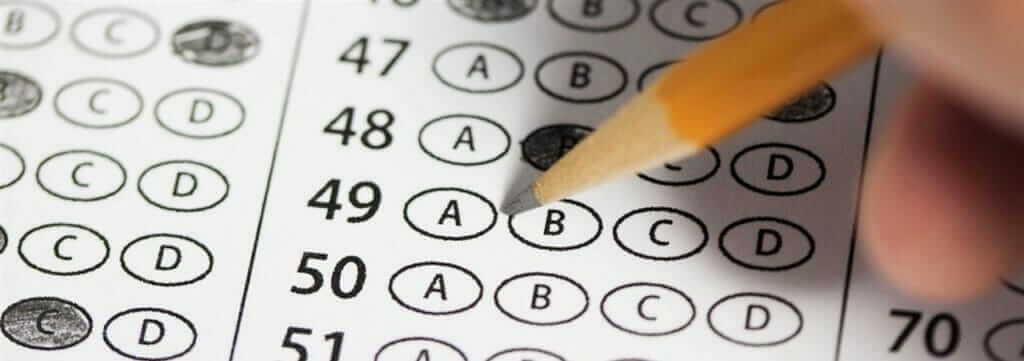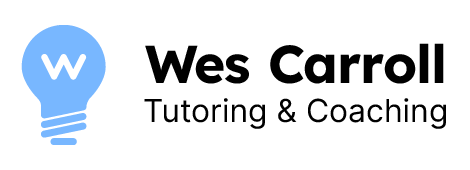February is the final date of the AMC, but it is also time to start your prep for SAT Subject Tests and AP’s. Examine your test prep strategy. How will your hard work pay off, not only at test time, but also later in life? How will you utilize the skills you’ve refined over the course of your preparation to create a better you?

If we do only what is required of us, we are slaves; the moment we do more, we are free.
Cicero
Let’s pay attention to how learning the advanced stuff is different.
Some people never figure out this difference. They have some success learning the first lessons of a subject, and then they form a habit of “protecting” their knowledge of the basics against new information that could threaten what they “know.” (See Chapter 5, “Harnessing your mindset,” to remind yourself how this can happen.)
By contrast, you will instead maintain a growth mindset (also known as “beginner’s mind”), which means thinking of your knowledge as a way to get to expertise, rather than thinking of it as an accomplishment.
Concepts, tools, skills
When you’re doing it right, it goes like this: first you get the concepts, then you get the expert tools, then you develop skill with the tools.
For example, when you learn physics, one of the things you discover early on is the idea of “projectile motion,” i.e. the way things move when they are flying through the air. Once you understand this concept, you learn the equations that govern this behavior. These equations are the tools that let you predict exactly where a flying thing will be, and when.
But the really interesting learning is the part that is supposed to happen next. This is where you transition from knowing all the stuff, to understanding how to use it effectively.
Once you’ve gained those expert skills, word problems become not just doable, but obvious. You’ll watch baseball and see what it means for an outfielder to “be where the ball is going to land.” These are practical physics skills that you can learn after you know the basics, but they don’t happen automatically. You still have to work in order to get there.
A few examples
Let’s see how people do this in practice—both correctly and incorrectly—through a few general examples.
Consider people trying to learn math, especially math like, say, precalculus. They often spend their time memorizing formulas. But you now understand that although formulas are necessary for understanding math, they aren’t enough. Formulas are only tools. Once you’ve learned the formulas and read the explanations, you need to transition to learning the expert skills. In the case of math, this skill comes from solving problems. By trying (and, usually, failing a lot), people learn a lot more useful math a lot more
quickly.
What about people trying to learn a language? They usually start with memorizing vocabulary. Of course, you have to know what the words mean before you can start putting them together in any useful way. (This is the basic concept of learning a foreign language: as Steve Martin said, “They have a different word for everything!”). The most common mistake here is to try to memorize all the vocabulary at the beginning. What’s smarter is to get a small collection of vocabulary words down cold, then start reading, speaking, and writing in the target language using that implied vocabulary. By doing this you work the necessary skills (reading, speaking, writing) that are built on the fundamental tools (meanings of words), as soon as possible.
Sports also have their drills that lead to mastery of the basic patterns of movement and attention required for success (as well as general conditioning). Once you have these tools, you can (and should) immediately start building the skills needed to win at the sport.
How we usually go wrong…and how to do better
Each subject has its fundamental knowledge that must be completely committed to memory before mastery becomes possible. But each subject will also allow you to keep working on the fundamentals instead of graduating to the skills of mastery, if you’re not careful.
That’s why it’s important not to confuse the fundamentals with the skills that are meant to be built on top of the fundamentals.
Why would we keep working on fundamentals? The answer’s simple. It’s because it’s always comfortable to work at something you’re already good at. It’s harder to work at something new. So, if you want to master a subject, there comes a point at which you need to decide that you’ve mastered the necessary core knowledge, then tear yourself away from working at the fundamentals, and start working at a new, higher level.
And this is why many successful language-acquisition programs insist that students begin speaking as soon as they have a minimum vocabulary. It’s also why math is best learned by solving problems rather than by reading explanations. (And it’s why no one’s ever gotten good at a sport by watching it from the bleachers.)
As soon as you can, you have to transition from learning more fundamentals to practicing. And that means learning from your mistakes.
Deliberate practice
Anders Ericsson (mentioned earlier, in Chapter 3, “10,000 hours?”) describes the idea of deliberate practice – an effort to systematically practice just beyond one’s skill level – as the key to accelerated improvement in any discipline. This sort of deliberate practice is difficult and demoralizing, as it involves constant failure. And it can be exhausting, because it challenges your mind at multiple levels at once. Not only are you grappling with uncomfortable new processes and techniques, but you are also monitoring your own process, and devising new challenges for yourself on the fly. So, it’s hard. But it works like nothing else.
In a test-preparation context, this means that you must begin taking practice tests as soon as you can reasonably expect to be able to answer some of the questions asked. As you struggle with the material, you will not only learn which bits of fundamental knowledge you are missing; you’ll also learn whether your pace is correct, whether your nerves are hurting or helping you, at what time of day you do your best work, how much sleep you need, and on and on and on.
With each mistake, you have an opportunity to be completely honest about the reasons for your error, which in turn leads to ideas about how to correct future errors by changing not only your knowledge, but also your habits and even your outlook.
Obviously, this is not the same as just doing an activity. For example, playing a sport for fun for eight hours a day is not the same as deliberate practice; deliberate practice would involve setting up drills to specifically focus on deficiencies in one’s skill and practicing those drills until the deficiency is corrected.
Ericsson draws the conclusion that natural talent means nothing without deliberate practice. In fact, in situations where we think of somebody having natural talent, an investigation shows that they just got started on their deliberate practice earlier than most.
When you want to get good at something, aim to do it the way masters do it. Then, when you fail, be gentle and honest with yourself. Look for exactly what you did wrong, observing yourself without judgment. Then address the mistakes, whatever they may turn out to be.
Summary
Mastery of the basics is just the beginning.
Would you like to read more?
This post is an excerpt from my new book, “How to Be a Bright(er) Student: The Craft of Developing Your Brilliance”, a step-by-step guide to unlocking your inner potential and become the math whiz you were always meant to be. Available on Amazon.



0 Comments